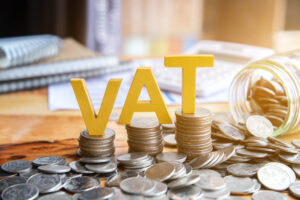Hotel La Tour (“HLT”) & The Court of Appeal (“CoA”)
I’m sure Shakespeare would have admired the back-and-forth nature of the decided litigation handed down to date in the above case. Alas (poor Yorick), for those of us who provide VAT advice for a living, what felt like a significant plot twist in both the First Tier Tribunal (“FTT”) and Upper Tier Tribunal (“UTT”) decisions has now, following the CoA’s unanimous ruling this week in favour of HMRC, meant a reversal of fortune for the taxpayer and perhaps a re-confirmation of the well-established principal that VAT incurred on costs which are ‘directly attributable’ to an exempt supply (and the sale of shares is exempt under Group 5 of Schedule 9, VATA 1994) are not recoverable even if the proceeds of such a sale was to fund downstream taxable activities.
Background
To help subsidize the construction of a new hotel, HLT sold an existing hotel by way of disposing of the shares in the corporate vehicle which owned the property. The basis for HLT’s claim for the recover of VAT incurred on associated legal and PR costs was to argue a ‘look-through’ type analysis i.e. the services had a ‘direct and immediate’ link to downstream taxable activities, being. the operation of a new hotel by an entity within the HLT VAT group. Perhaps surprisingly (and giving hope and impetus to submitting fresh backdated claims going back 4 years) the FTT and UTT agreed with this analysis despite HMRC’s view that HLT should be denied VAT recovery on the basis that the costs related to an exempt share sale.
The CoA decision
Whilst the CoA acknowledged that input tax associated with a disposal of shares may have a direct connection with either a share sale or with the appellants business in general, there was a rejection of the notion that it was necessary to look at the purpose behind the immediate transaction i.e. to raise funds to pay for an asset that would generate future taxable supplies. In conclusion, the CoA decided that the costs incurred were directly attributable to a VAT exempt share sale which was deemed part of HLT’s economic activities. It is too early to say whether HLT will seek leave to appeal the decision to the Supreme Court. Time will tell.
Claritas Comment
Perhaps it’s no great surprise that ‘normal service has resumed’ and the default position (as had been the case ever since the 1995 European Court of Justice decision in BLP) that irrecoverable VAT should be factored in by vendors/sell-side CF advisors involved in fund-raises by way of share sale transactions. Whilst the door is not totally closed in relation to what can and can’t be recovered in relation to VAT costs that may be incurred as part of a corporate disposals (e.g. some types of pre-transaction due diligence costs which may have a broader business purpose can, at the discretion of HMRC, be regarded as recoverable), the decision is clearly a body-blow to those seeking VAT refunds for past transactions.
We believe the key take-aways of this case law development are twofold: 1. Notwithstanding other commercial and tax consequences, could the arrangements have been structured any differently to secure VAT recovery on associated costs e.g. a VAT-free Transfer of a Going Concern of the trade and assets of a hotel operating business. 2. Take specialist advice early on what VAT recovery is possible in relation to transaction costs associated with any form of M&A-related activities.



